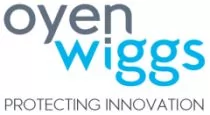Bill 96, enacted in June 2022, introduced significant changes to the Charter of The French Language regarding the use and prominence of non-French language trademarks on store signage, product packaging, and advertising and increased penalties for non-compliance with the new provisions. The strict approach of Bill 96 with respect to non-French trademarks, exempted only registered trademarks from translation into French.
On 26 June 2024 the Quebec Government published final amendments to the Regulation respecting the language of commerce and business which addressed some of the concerns regarding this limited exemption from translation, adding pending applications to the definition of registered trademarks.
A further significant clarification introduced through these Regulations relates to the translation requirements for product packaging. The Regulations provide that a common law trademark (not only a registered trademark) need not to be translated, if no corresponding French version of the common law mark appears on the Canadian Trademarks Register. The Regulations further exclude from the translation requirements any business and product names.
The Regulations, however, maintain requirements that generic or descriptive terms that are part of the non-French trademarks be translated and that the translation must appear on the product or on a medium permanently attached to the product. This requirement applies equally to registered and common-law trademarks.
Although the Regulations provide guidance and some clarity regarding the amendments to the Charter, it remains to be seen how the Office québécois de la langue française (OQLF) will apply the amendments and the exceptions from translation when product names contain descriptive or generic text.
Charter Of The French Language-Regulation Respecting The Language Of Commerce And Business
The content of this article is intended to provide a general guide to the subject matter. Specialist advice should be sought about your specific circumstances.


